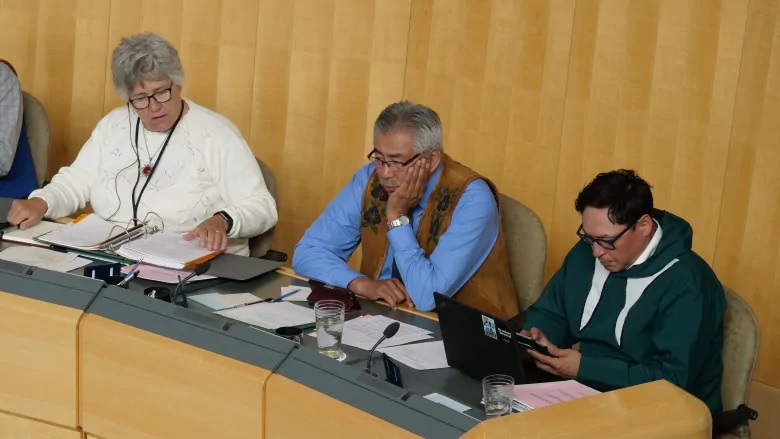New Corrections Act brings big changes to jails in Canada’s Northwest Territories

The Northwest Territories’ overhaul of its corrections law could be a new model for reconciliation and offer inmates “a light of possibility and hope,” says one of the MLAs responsible for reviewing the bill.
In a session where regular MLAs and cabinet members have often been at odds — with at times, combative debate — the Corrections Act passed through its final review Wednesday with unanimous support.
“It offered me a glimpse of hope that reconciliation could happen with this government,” said Dehcho MLA Michael Nadli, speaking of the willingness of the Justice Department to make changes to the bill.
“It brought back hope to me that changes can be made.”
Nadli, who was part of the committee that reviewed the act, has spent time in jail. In 2015, he served eight days of a 45-day sentence in jail, after being convicted of assault after breaking his wife’s arm.
Since then, he’s spoken about the need for rehabilitation programs and services for people who are incarcerated. That was most notable in 2016, when the future of the A New Day domestic violence program was in jeopardy.
“It gives you a level of compassion, or affinity for people who go through struggles. There’s a human element of compassion where you’re trying to help out other people who need help,” Nadli said.

At first, Nadli felt pessimistic about the overhaul, fearing that it would just be a carbon copy of the original Corrections Act, first passed 40 years ago.
But now he’s pleased with new oversight provisions in the legislation, which include adopting a new code of conduct for corrections staff, annual reports on corrections, and a clear process for addressing complaints from inmates.
Wide-ranging changes adopted by MLAs
Other changes include allowing for on-the-land rehabilitation services for Indigenous inmates and allowing Indigenous inmates to have access to elders or spiritual advisers while in jail.
The new rules also allow prisoners on remand to access treatment programs. As well, they set clear rules about when segregation is appropriate.
The bill itself begins with a purpose statement detailing the principles that guide the act and the corrections service generally.
Justice Minister Louis Sebert agreed with all 32 motions suggested by regular MLAs, saying he, too, was proud of the final bill.
Related stories from around the North:
Canada: Judge ignored Indigenous sentencing report while giving Inuk man open-ended sentence, appeals court rules, CBC News
Finland: Police in Northern Finland overstretched, says retiring officer, Yle News
United States: U.S. Attorney General hears from Indigenous leaders about justice problems in rural Alaska, Alaska Public Media



